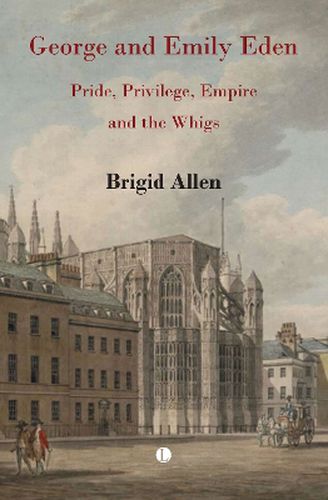Readings Newsletter
Become a Readings Member to make your shopping experience even easier.
Sign in or sign up for free!
You’re not far away from qualifying for FREE standard shipping within Australia
You’ve qualified for FREE standard shipping within Australia
The cart is loading…






George and Emily Eden were a devoted sibling pair. Both unmarried, they were accepted as a mildly unconventional couple by friends in the dynastically conscious governing class. George (1784-1849) entered politics as a Whig to replace his elder brother, who had been groomed for success but drowned in the Thames off Westminster one January night in 1810. Four years later George inherited his father's peerage as 2nd Baron Auckland. In 1835 he was appointed Governor-General of India, and Emily (1797-1869), although reluctant to leave her close friend, the Prime Minister Lord Melbourne, went with him. A witty and perceptive writer, who later published a distinctively voiced pair of novels, Emily chronicled the Indian period, as she did her entire adult life, in letters. Allen traces the development of her closeness to George, their interlocking private and public lives and the events that impacted on them, including the Afghan disaster of January 1842 and the mixture of blame and forbearance that George attracted at home. A poignant coda describes Emily's final twenty years as Victorian invalid, author, and observer of the political scene.
$9.00 standard shipping within Australia
FREE standard shipping within Australia for orders over $100.00
Express & International shipping calculated at checkout
George and Emily Eden were a devoted sibling pair. Both unmarried, they were accepted as a mildly unconventional couple by friends in the dynastically conscious governing class. George (1784-1849) entered politics as a Whig to replace his elder brother, who had been groomed for success but drowned in the Thames off Westminster one January night in 1810. Four years later George inherited his father's peerage as 2nd Baron Auckland. In 1835 he was appointed Governor-General of India, and Emily (1797-1869), although reluctant to leave her close friend, the Prime Minister Lord Melbourne, went with him. A witty and perceptive writer, who later published a distinctively voiced pair of novels, Emily chronicled the Indian period, as she did her entire adult life, in letters. Allen traces the development of her closeness to George, their interlocking private and public lives and the events that impacted on them, including the Afghan disaster of January 1842 and the mixture of blame and forbearance that George attracted at home. A poignant coda describes Emily's final twenty years as Victorian invalid, author, and observer of the political scene.